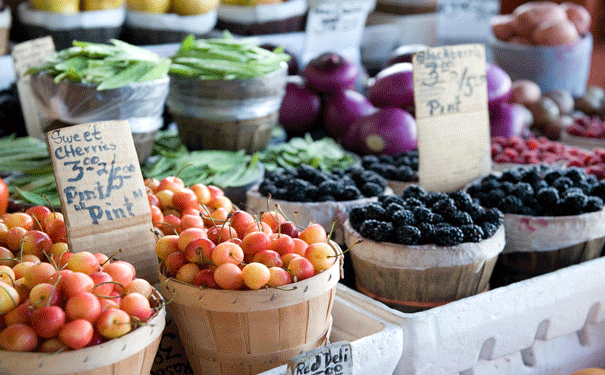
Organic foods play a vital role in feeding our population. Image: Shutterstock
Organic foods have an important role in feeding a growing population.
Australia’s population has been steadily increasing over the past few decades, with a population growth rate of about 1.4 per cent for the year of 2011 — faster than any other developed nation in the world.
This steady increase illustrates the need for major changes in our food system; agriculture must meet the challenge of feeding a growing population with rising demand for meat and high-calorie diets, while also minimising environmental impacts. Organic farming — a system aimed at producing food with minimal harm to ecosystems, animals or humans — is proposed as a solution.
Organic foods are a preferred option for many people, as they believe it is healthier than conventional food. This is because on average organic foods are higher in antioxidants, do not contain food additives nor do they have chemical residue. However, it is believed crop yields from organic farming are generally lower than from conventional agriculture. They need more land to produce the same amount of food as conventional farms, resulting in more widespread deforestation and biodiversity loss and undermining the environmental benefits of organic practices.
According to professor Jules Pretty, Deputy Vice-Chancellor of Science and Engineering and Sustainability and Resources at the University of Essex, UK, the assumption that greater inputs of synthetic chemical fertilisers and pesticides are needed to increase food yields is not accurate.
“Farmers are finding that they can cut their inputs of costly pesticides and fertilisers substantially, varying from 20 to 80 per cent, and be financially better off. Yields do fall to begin with (by about 10 to 15 per cent), but there is compelling evidence that they soon rise and go on increasing,” he said in a press release by the Organic Federation of Australia.
Tim Marshall, deputy chair of the Organic Federation of Australia, agreed that organics had a vital role to play in feeding our population. “The essential thing we need to do to feed the world is to change our diet: to eat less meat, a smaller component of still grain and more vegetables. If we do that, then we are very able to feed a growing population,” he told ABC news.
While cutting back from our steak burgers and roast dinners may seem a bit extreme, it does not look like organic foods will be completely taking over conventional foods any time soon. Rather, professor Jonathan Foley of the Institute on the Environment at the University of Minnesota, US, believes that to have a sustainable food system would require a combination of both organic and conventional foods.
“By combining organic and conventional practices in a way that maximizes food production and social good while minimising adverse environmental impact, we can create a truly sustainable food system,” he says.
Source: Science Daily







Organic Food
January 24, 2013
Yes, it can be! I always prefer organic food. I have my own farms and grow vegetation there. Nothing can compare with the quality and reliability of organic food and vegetables.